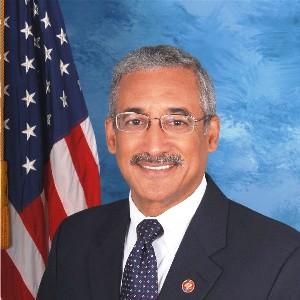The California Supreme Court has ruled that cities and counties can indeed ban medical marijuana dispensaries. That means your access to medical marijuana depends on where you live in the state. A fix could be coming from the legislature, but it's not here yet.
Three Idaho medical marijuana activists are now caught up in a child endangerment battle after authorities seized their kids when a schoolmate got sick from what is alleged to have been marijuana that allegedly came from one of their homes.
StoptheDrugWar.org needs your support to continue our work during the most important time in drug reform we've ever seen. We have gifts to send you too, with donations of $15 or more.
Interns are making an important difference fighting the good fight with us at StoptheDrugWar.org.
Remember when we used to say "You don't have to make a federal case out of it?" Well, we did. Now, we have more than 4,500 federal criminal laws, and some members of Congress are ready to do something about it.
A bill that would give California prosecutors the option of charging hard drug possession as a misdemeanor instead of a felony has passed the state Senate and now heads to the Assembly.
It went down to the wire, but on the last day of the session, the Colorado legislature passed bills to regulate the state's looming legal marijuana market.
Separate overdose prevention and syringe exchange bills were approved by the Colorado legislature this week. They now go to the governor's desk.
Marijuana rescheduling is headed for the US Supreme Court, the California Supreme Court upheld local dispensary bans, the feds strike again in Berkeley and Washington state, and there is action in state legislatures, too.
The next state to decriminalize marijuana won't be New Hampshire, at least not this year.
A drug search turned fatal for a Louisiana man last Thursday night, with police saying he died after swallowing crack cocaine. He's number 11 for the year.
Something is still rotten along Utah's Wasatch Front, a DC cop gets popped for money-laundering, a Detroit-area cop pleads to running protection for traffickers, and a South Texas cop heads for prison for shipping guns to Mexico.
In a ruling that will leave California's patchwork approach to medical marijuana dispensary regulation in place, the state Supreme Court ruled Monday that local governments can ban dispensaries from operating within their jurisdictions. For patients, that means access to medical marijuana at dispensaries will depend on the political currents in their city or county.
The decision likely means that cities and counties that had been holding off on banning dispensaries will now take steps to do so. It will also increase pressure on the state legislature to come up with a means of statewide medical marijuana regulation, something it is working on right now.
The case was City of Riverside v. Inland Empire Patients Health and Wellness Center, Inc., in which Inland Empire sued the city after Riverside using its zoning power to declare that dispensaries were nuisances and ordered them shut down. Inland Empire went to court to block the city from forcing it to close.
The decision was eagerly -- and anxiously -- awaited by all sides. Cases on local bans had been percolating through the state court system for several years, with state appeals courts splitting on the issue. An appeals court had earlier sided with the city of Riverside, but a trial court last summer held that Riverside County could not ban dispensaries, and an appeals court in Southern California had struck down Los Angeles County's ban on dispensaries.
The move by the city of Riverside was part of a broader counter-offensive against the proliferation of dispensaries after the Obama administration signaled in 2009 that it would take a largely hands-off approach. According to the medical marijuana defense group Americans for Safe Access, more than 200 cities or counties in the state have since moved to ban dispensaries. That move toward local bans has since slowed, in part because of uncertainty over their legality and in part because the federal offensive since the Obama administration shifted gears in the fall of 2011 has driven hundreds of dispensaries out of business.
Patient and industry advocates had argued that allowing localities to ban dispensaries ran counter to the intent of the state's voter-approved medical marijuana law. The law called for making medical marijuana accessible to people with doctors' recommendations for its use. But the state's high court sided with the localities.
"The issue in this case is whether California's medical marijuana statutes preempt a local ban on facilities that distribute medical marijuana. We conclude they do not," wrote Justice Marvin Baxter for a unanimous court. "The CUA and the MMP [state medical marijuana laws] do not expressly or impliedly preempt Riverside's zoning provisions declaring a medical marijuana dispensary, as therein defined, to be a prohibited use, and a public nuisance, anywhere within the city limits."
"While the California Supreme Court ruling ignores the needs of thousands of patients across the state, it simply maintains the status quo," said Joe Elford, chief counsel with Americans for Safe Access, which filed an amicus 'friend of the court' brief in the case. "Notably, the high court deferred to the state legislature to establish a clearer regulatory system for the distribution of medical marijuana, which advocates and state officials are currently working on."
"There is nothing surprising about this; it affirms the status quo," said Dale Gieringer, longtime head of California NORML. "I've been following the court cases and reading the state constitution, and it seems pretty clear that local governments have broad authority under California law."
"Today's decision allowing localities to ban will likely lead to reduced patient access in California unless the state finally steps up to provide regulatory oversight and guidance," said Tamar Todd, senior staff attorney for the Drug Policy Alliance. "The good news though is that this problem is fixable. It is time for the state legislature to enact state-wide medical marijuana oversight and regulation that both protects patient access and eases the burden on localities to deal with this issue on their own. Localities will stop enacting bans once the state has stepped up and assumed its responsibility to regulate."
"We're hoping that we can fix this by having some sort of state regulation system where people have access wherever they live in the state, if not by local dispensaries, then at least by some sort of delivery service," Gieringer said. "I think they're trying very hard to do something this year. Remember, last year, the Assembly passed a regulation bill and the Senate came very close, and now we have the leader of the state Senate supporting the same concept, so I think the prospects are pretty good for action."
The statewide medical marijuana regulation bills this year are Assembly Bill 473, sponsored by Assemblyman Tom Ammiano (D-San Francisco), and Senate Bill 439, sponsored by Senate President Pro Tem Darrell Steinberg (D-Sacramento). Both bills have passed their first committee votes and are supported by a broad coalition of patients, dispensaries, and law enforcement groups.
But until and unless statewide regulation is passed in Sacramento, the battle over patient access to dispensaries is now going to be fought in city council chambers and county supervisor meeting rooms in cities and counties across the state. That is going to mean differential access to medical marijuana depending on the political complexion of the localities where patients reside.
back to top
Idaho is officially not a marijuana-friendly state. Although it is bordered on most sides by medical marijuana states (Washington, Oregon, Nevada, and Montana), it so far refuses to accept the medicinal use of the herb. And even though one of those states (Washington) has legalized marijuana and two others (Nevada and Oregon) have decriminalized it, Idaho remains firmly grounded in 20th Century attitudes toward the plant. The state legislature this year took the time to approve a non-binding resolution noting its opposition to marijuana legalization.
But that doesn't mean there aren't reformers in the Gem State. There have been sporadic local marijuana legalization efforts in past years, and this year, medical marijuana supporters are in the midst of signature-gathering campaign to put an
initiative on the ballot.
That campaign is led by Compassionate Idaho, some of whose most stalwart and publicly visible members are Lindsey and Josh Rinehart and Sarah Caldwell. But with an incident that began while Caldwell and the Rineharts were away on a retreat, the trio are learning a harsh lesson in hardball pot politics. When they got back home, their kids were gone, and the police and child social services had them.
According to Boise Police, who released a statement on the matter as controversy grew, on April 23, they were contacted by a local school official about a child who had apparently eaten marijuana and fallen ill. Police "learned from witnesses" that the supposed marijuana supposedly came from the Rinehart residence, and, "concerned for the safety of children at the residence," they went there and found a baby sitter caring for the Rinehart and Caldwell children.
Police persuaded the baby sitter to let them search the residence and "found drug paraphernalia, items commonly used to smoke marijuana, and a quantity of a substance that appeared to be marijuana in locations inside the house accessible to the children." Police at the scene then contacted both narcotics investigators and the department's Special Victims Unit.
(Rinehart, a Multiple Sclerosis sufferer, said she indeed had medical marijuana at home, but that she had a small amount and a pipe on a dresser in her bedroom, a larger amount of trim locked away in a freezer, and some marijuana tincture in a bottle in a kitchen cabinet atop her refrigerator.)
"Based on the fact that illegal drugs and drug paraphernalia were located in an area that appeared to be commonly used by the children in the residence and the fact that one child had already become ill from ingesting what he assumed was marijuana, and the inability to contact the children's parents, detectives made the decision to contact Idaho Health and Welfare officials and place the children in imminent danger, meaning they were placed in the protective custody of the state until it can be determined they are in a safe environment," the statement said.
At this point, it is unclear whether whatever made the school child sick was marijuana. It is equally unclear that any marijuana came from the Rinehart residence. What is clear is that both the Rineharts and Sarah Campbell are up-front, in-your-face medical marijuana patients and activists, and that their children were being subjected to the tender mercies of the state.
Sarah Caldwell has had her kids returned to her -- it was not her child who is suspected of providing the suspected marijuana -- but the Rineharts are still fighting to get their kids returned.
"My sons were not involved," Caldwell said. "They were at the house the police searched, the police decided my kids were in 'imminent danger,' and it took three days to get them back."
While the two boys and the Rinehart kids were held at the same foster home, providing them with the small comfort of being with friends, Caldwell said her younger son was traumatized.
"My six-year-old is autistic," she explained. "I noticed when he came home, he started packing his favorite toys. I asked him why and he said, 'In case the police make me go away again.' He doesn't understand why," Caldwell said, her voice breaking.
While Caldwell has her children at home again, both she and the Rineharts are going to have to comply with the requirements of the child welfare system to ensure that their children can return to their old lives. But, Lindsey Rinehart said, Child Protective Services is moving more quickly than usual in her case.

Sarah Caldwell's boys are back at home now, but the Rineharts are still waiting to get theirs back.
Normally, Child Protective Services requires parents to meet with them at the department three times, then allows them to have three visits with their children in the community, then inspects the home to ensure a safe environment is being provided, and only then considers returning the kids, most likely with the added provision that the parents must undergo parenting and drug education classes. But when the Chronicle last spoke to Rinehart Saturday, she was in the middle of a home visit with her kids -- one that ends Sunday morning.
"They seem to be expediting the process because they realize they messed up," she said. The state taking her kids wasn't doing them any favors, she added.
"My oldest son now will only talk if you ask him really specific questions, and my younger one is acting out," she said. "He is upset and argumentative; he has a hard time vocalizing things," she said of her six-year-old. "I told him I had to go to the store, and he freaked out; he didn't want me to leave him. He's reacting like I've never seen before. He was a happy kid; now he's mad and confused. He doesn't understand what's going on."
The older Rinehart son is having issues, too, she said.
"He's mad. Both of the kids have been educated about my medicine, so they know this is wrong," the multiple sclerosis sufferer explained. "They're mad that they were taken away because mommy had her medicine. I'm trying to comfort them as best as I can. They just know that somebody took them away, and now I have to explain that they have to go back to foster care tomorrow," Rinehart said, her voice trembling.
Both the Rineharts and Sarah Caldwell suspect they were set up.
"I'm the director of Compassionate Idaho. Everybody knows who I am. I'm on the news at least once a month," said Rinehart. "We had just done the Hemp Fest in Moscow and signature-gathering in five towns. The police knew what they were looking for, and they knew where to look without anyone telling them. Those kids on the playground didn't know where to look. There were kids from several other families involved in that playground incident, but we think the police got who they wanted."
"I do think they were targeting us," Caldwell agreed. "That incident at the school was just an excuse for them to try to get us."
"This has got me fired up," Caldwell said. "They took my children to try to keep me focused on getting my kids back so I wouldn't do my activism, but I'm not going to stop."
The use of children as pawns in the marijuana culture wars is shocking and distressing, but nothing new, said Keith Stroup, founder and currently counsel for the National Organization for the Reform of Marijuana Laws (NORML).
"We get calls three or four times a week from people who have lost custody of their children because they tested positive at birth or in a situation where parents are feuding over custody," Stroup said. "One will say 'My spouse smokes marijuana and is thus not a fit parent,' and once that child welfare issue is raised, it's a totally separate matter from the criminal justice system. Even if no one is proposing to arrest the parent, this is far more damaging and destructive to the family."
That's at least in part because once child welfare has its clutches on you, it doesn't want to let go, and it typically has an attitude toward marijuana use that is reminiscent of Reefer Madness, Stroup said.
"They can require that you take parenting and drug education courses right out of the 1950s," he said. "It's a worthless routine, but you have to do it, you have to pay hundreds of dollars to do it, and you can't get your kids back until you do it. It doesn't matter how nice or good a parent you are or how well-intentioned you are, once you get caught up in this, you are in for a bad time."
NORML is doing what it can to assist the Idaho activists, Stroup said, adding some words of advice for other marijuana-using parents, especially (but not only) in places where attitudes toward the herb are hide-bound and hardened.
"If you're in a place like Idaho and you're a young parent, never smoke in front of your kids, so if that issue ever arises, you can make sure nobody can say you were smoking marijuana and kids were playing in the same room," he counseled. "You have to be able to demonstrate convincingly that you are providing a safe and secure place for your kids. In places like Idaho, you could lose custody over your kids for something many of us in many parts of the country take for granted."
Getting the kids back is only part of the problem for the Rineharts. Idaho treats even small-time pot possession seriously -- it's one of those place where people still actually do get jail time for it -- and the couple is facing possible felony charges for possessing more than an ounce of trim.

Lindsey Rinehart tabling at the Moscow Hemp Fest just days before it all went down.
"I'm living in an ongoing panic attack," said Lindsey Rinehart. "They update their warrants every five hours, so I check in frequently, and first thing in the morning. Because of my illness, I can't handle physical pressure very well, and I'm afraid they could hurt me when arresting me, so my lawyer has asked that if they do charge me, they just cite me."
All the stress isn't helping, and now, Rinehart can't have her medicine, either.
"I have prescribed meds to suppress my immune system, but those make me really sick. With cannabis, I only had to take it every other day," she explained. "Now, I have to take it every day, and it's so dangerous we have to regularly check my heart, liver, kidney, and eye function. And if I have pain, I'll have to go back to hydrocodone. I'll be going back on those meds I had been able to taper down from with cannabis."
But despite the trials and tribulations, neither the Rineharts nor Sarah Caldwell have been cowed, and their travails have energized supporters as well.
"People are really mad about this and are getting involved," said Rinehart. "We even have people reaching out to help fund Compassionate Idaho.
"People are coming out of the woodwork after hearing our kids got taken because of our activism," said Caldwell. "People are saying they want to help. Education is key here -- a lot of people here believe the Reefer Madness, but this is a non-toxic plant; it can't hurt you."
"The bigger picture is that we don't want this to happen to more families," said Rinehart.
"We're getting more calls than we ever did about child custody," Stroup reiterated. "There are still people being seriously damaged from what's left of marijuana prohibition. Few go to jail for marijuana anymore, but many lose custody of their kids. These repercussions may be more subtle, but they are not insignificant."
The Rineharts and Sarah Caldwell still have to deal with Child Protective Services, and the Rineharts are still waiting to see if they will face criminal marijuana and child endangerment charges. But in the meantime, there are 55,000 signatures to be gathered to get medical marijuana on the ballot and start changing Idaho's reactionary response to marijuana.
back to top
Dear friend,
StoptheDrugWar.org needs your help to continue our programs -- like this newsletter,
Drug War Chronicle -- during this most important time in the cause there has ever been.
Click here for some examples of how activists around the world rely on
Drug War Chronicle in their work.
As our thanks for your support, we continue our full set of membership offers, some of them available with donations of $15 or greater to our organization. We also continue to offer, with donations of $35 or more, "
Marijuana Legalization: What Everyone Needs to Know," authors of which were
recently hired to consult with the state of Washington on implementing legalization there.
The newest item is a pair of reports that highlight the US and international legal landscapes as legalization becomes a mainstream issue. (We'll send you both for the $15.) Though the text of each report can be found online, for $15 or more you can hold the nice printed copies -- the history in the making -- in your hands. They are:
- "On the Limits of Federal Supremacy: When States Relax (or Abandon) Marijuana Bans," a Cato Institute Policy Analysis by Vanderbilt law professor Robert Mikos, explores the limits in federal law and resources for enforcing marijuana prohibition in states that have legalized.
- "Governing the Global Drug Wars," a special report by London School of Economics IDEAS, details the history of the global prohibition regime; the obstacles it poses to nations seeking to explore legalization and other reforms, and efforts by nations and agencies to transform the system into one respecting public health and human rights.
We are also pleased to continue offering the following items (while supplies last), now also with donations of $15 or more:
- Emperor of Hemp DVD, about the life and work of Jack Herer (memorial tribute edition)
- StoptheDrugWar.org strobe light
- StoptheDrugWar.org stamp and ink pad
- StoptheDrugWar.org mouse pad
Though we offer many items for $15, I hope you will consider making a larger donation if you are able, or supplementing your initial gift with a monthly one. If the gifts are not important to you, I hope you'll consider sending a donation that's just for our work.
Donations can be tax-deductible, supporting our educational work, or non-deductible, supporting our lobbying work. (Note that selecting any gift items reduces the amount of your donation that is deductible -- which with a smaller gift amount can be most of it.) They can be made online on our web site by credit card or PayPal, or sent by mail to P.O. Box 18402, Washington, DC 20036. If you are donating by check, please make it payable to DRCNet Foundation (if tax-deductible) or Drug Reform Coordination Network (if not deductible).
If you wish to donate stock, the information to give your brokerage is Ameritrade, (800) 669-3900), DTC #0188, and account number 781926492 for tax-deductible gifts or 864663500 for non-deductible gifts -- please make sure to contact us if donating in this way.
Thank you for standing with us to stop the drug war's cruelties and meet the opportunity this time offers to make a brighter future. As recent events show: Time, and the truth, are on our side!
Sincerely,

David Borden, Executive Director
StoptheDrugWar.org
Washington, DC
http://stopthedrugwar.org
back to top
StoptheDrugWar.org works for an end to drug prohibition worldwide and an end to the "drug war" in its current form. We believe that much of the harm commonly attributed to "drugs" is really the result of placing drugs in a criminal environment. We believe the global drug war has fueled violence, civil instability, and public health crises; and that the currently prevalent arrest- and punishment-based policies toward drugs are unjust. Please visit our web site, and please read more about us.
We are seeking Legislative, Writing/Research, Web Content, Information Technology, and Admin/Finance interns (potentially still this semester, depending on your interests, definitely for the summer). Communications may also be applicable to current organizational projects. Preference will be given to applicants with some demonstrated experience the relevant fields, and to applicants in the Washington, DC area. However, consideration will also be given to enthusiasm for drug policy and criminal justice reform.
Note that StoptheDrugWar.org internships are unpaid. We reimburse for metro fare. Please also note that the organization has functioned as a "virtual office" environment since spring 2011. Staff will meet with interns on a regular basis during the semester, and can be available to meet and work together on a weekly or even daily basis, but this will happen in places like coffee shops or campuses.
In order to help our interns forge ties with the larger community, we are organizing intern networking social hours with other organizations in drug policy and justice reform. We are also arranging tours of the DC courts and possibly jail, and public health and other programs that have bearing on drug policy. Interns are also welcome to join us at the frequent legislative working group meetings that take place on our issues here in Washington.
Please send cover letter, resume, and any supporting material you'd like to include, to StoptheDrugWar.org executive director David Borden, at [email protected]. (We recommend using a return receipt to ensure your emails are not blocked by any filters.) Thank you, and we look forward to hearing from you. Information on our specific intern positions follows below.
Legislative
Legislative interns will help, and in some cases play a leading role, on the following organizational projects:- Bill and vote tracking, at the federal and state level, including write-ups for our web site's legislative center (possibly in collaboration with Writing interns);
- Creating action alerts on current legislation and other advocacy priorities, to be distributed through our web site and email list (possibly in collaboration with Writing and Web Content interns); and
- Coalition outreach to secure partners for organizational sign-on letters to Congress.
Interns may also join us at working group meetings on issues including but not limited to sentencing reform, drug policy including marijuana law reform; collateral consequences of criminal convictions; and reinvigorating the presidential clemency/pardon system. Spanish-language skills may be useful.
Writing/Research
Writing/Research interns will have the following opportunities:
- Assist Drug War Chronicle editor Phillip S. Smith with ongoing article collection and research for feature articles on our web site (which are frequently reprinted on major news sites such as alternet.org).
- Assist with research on special topics, the goal of which is the publication of special reports. Likely projects include but are not necessarily limited to follow-up research on US drug war killings (see our recent report here); procuring drug arrest data and possibly arrest reports from various jurisdictions for various months and years, to evaluate the results of recent policy reforms, particularly for marijuana.
- Bill and vote tracking, at the federal and state level, including write-ups for our web site's legislative center (possibly in collaboration with Legislative interns);
- Creating action alerts on current legislation and other advocacy priorities, to be distributed through our web site and email list (possibly in collaboration with Legislative interns);
- Updating an archive of SWAT raids and other paramilitarized policing activity that went wrong (possibly in collaboration with Web Content interns); and
- Assisting with updating or creating various special sections of our web site (possibly in collaboration with Web Content interns).
Interns with Spanish-language skills may be involved with reporting on the Mexican drug war.
Web Content
Web Content interns will assist with the following work:
- Daily link and other content postings;
- Development or maintenance of special sections of our web site (possibly in collaboration with Writing interns); and
- General social media work, including a number special social media projects.
We may also initiate an informal web video series, for which intern assistance would be invaluable, but this has not been decided yet.
Information Technology
IT interns will assist with the following projects:
- Backend web site programming, primarily involving streamlining of our donations processing system;
- Server migration to a "cloud" arrangement;
- Security including PCI compliance;
- Selection and set up of needed software and services; and
- Database-related projects.
Admin/Finance
Admin & Finance interns may assist with the following organizational needs, among others:
- Bookkeeping;
- Nonprofit accounting including intra-company allocations and 990 preparation;
- Budget & cash flow analysis;
- Membership administration;
- Database work.
Admin & finance interns will gain familiarity with a significant range of nonprofits' administrative activities, and depending on schedule may have the opportunity to sit in on portions of board discussions or meetings with advisors.
Communications
As noted above, communications skills are applicable to a number of facets of our work this semester, and communications majors are encouraged to apply. We have not listed communications as a separate internship this semester, because we have not decided whether to engage in specific outreach efforts to mainstream media this semester. Along with the possibility that we will do so, other work of relevance to communications can be found in our Legislative, Writing, and Web Content internships.
Thank you for considering an internship with our organization. We look forward to hearing from you.
back to top
Ten members of the House Judiciary Committee have agreed to form an Over-Criminalization Task Force to review the expansion of the federal criminal code and make recommendations for paring it down. There are roughly 4,500 federal crimes on the law books, with new ones being added at a rate of about 50 a year.

Rep. Bobby Scott (D-VA) is one of 10 task force members.
This proposed review of federal criminal laws is the first since the
1980s, when the number of federal crimes on the books was about half what it is now. The task force will conduct hearings and investigate issues around
over-criminalization and will have the opportunity to issue reports to the Justice Committee on its findings and policy recommendations.
Task force members include Reps. Spencer Bachus (R-AL), Karen Bass (D-CA), Steve Cohen (D-TN), Louie Gohmert (R-TX), George Holding (R-NC), Hakeem Jeffries (D-NY), Raul Labrador (R-ID), Jerold Nadler (D-NY), Bobby Scott (D-VA), and James Sensenbrenner (R-WI). The group contains both prominent drug law reformers, such as Cohen and Scott, and prominent drug warriors, such as Gohmert and Sensenbrenner.
Among possible topics for the task force are federal drug laws and sentences in general and federal marijuana prohibition in particular. The group could also explore the issue of mens rea, or criminal intent, particularly in relation to the expansion of the use of conspiracy laws since the late 1980s. The use of those laws has led to low-level offenders, including some who were not even part of a drug trafficking enterprise, being sentenced to years or decades in federal prison -- sentences that were supposed to be reserved for high-level offenders.
"As former chairman and long-serving member of the Judiciary Committee, I've seen first-hand just how muddled the criminal code is," said Sensenbrenner. "It's time to scrub it clean. The Over-Criminalization Task Force will review federal laws in Title 18, and laws outside of Title 18 that have not gone through the Judiciary Committee, to modernize our criminal code. In addition, I reintroduced the Criminal Code Modernization and Simplification Act [not posted as of Tuesday] today, which would reform Title 18 of the US Code, reduce the existing criminal code by more than one-third, and update the code to make it more comprehensible."
"Unduly expansive criminal provisions in our law unnecessarily drive up incarceration rates," said Rep. John Conyers (D-MI), the committee's ranking Democrat. "Almost one-quarter of the world's inmates are locked up in the United States, yet Americans constitute only five percent of the world population. In addition, the incarceration rate for African Americans is six times that of the national incarceration average. I welcome the work of the over-criminalization task force in analyzing this serious issue."
"Although crime is primarily a matter for states and localities to handle, over the last 40 or so years Congress has increasingly sought to address societal problems by adding criminal provisions to the federal code," said Scott. "There are now over 4,000 federal criminal provisions, plus hundreds of thousands of federal regulations which impose criminal penalties, often without requiring that criminal intent be shown to establish guilt. As a result, we are hearing many complaints of overuse and abusive uses of federal criminal laws from a broad-based coalition of organizations ranging from the Heritage Foundation to the National Association of Criminal Defense Lawyers. Today, we are establishing a bipartisan task force on over-criminalization to assess issues and make recommendations for improvements to the federal criminal system, and I look forward to working with my colleagues on this worthy endeavor."
"This Task Force is a step in the right direction and could propose recommendations to significantly alleviate mass incarceration and racial disparities in the federal system," said Jasmine Tyler, deputy director of national affairs for the Drug Policy Alliance. "The establishment of this Task Force is long overdue for the drug policy reform movement. It is past time for Congress to re-examine marijuana laws, conspiracy laws, mandatory minimum sentencing, and the appropriate role and use of the federal government’s resources."
back to top
The California Senate Thursday passed a bill that would give prosecutors the option of charging people caught in the possession of small amounts of hard drugs with misdemeanors instead of felonies. Senate Bill 649, the Local Control in Sentencing Act, now goes before the Assembly.

California prison overcrowding (US Supreme Court)
Introduced by Sen. Mark Leno (D-San Francisco), the bill is designed to ameliorate California's ongoing over-incarceration crisis, reduce the burden of county corrections costs (counties are taking up the burden of imprisoning large numbers of people under the state's prison realignment plan), and increase the number of problem drug users entering drug treatment.
"One of the best ways to promote lower crime rates is to provide low-level offenders with the rehabilitation they need to successfully reenter their communities," said Leno. "However, our current laws do just the opposite. We give nonviolent drug offenders long terms, offer them no treatment while they're incarcerated and then release them back into the community with few job prospects or opportunities to receive an education. SB 649 gives local governments the flexibility to choose reduced penalties so that they can reinvest in proven alternatives that benefit minor offenders and reserve limited jail space for serious criminals."
Thirteen other states already allow misdemeanor filings for hard drug possession, Leno said.
"In these 13 other states we can document that there is higher participation in drug treatment," Leno said. "As a result there is lower drug use. As a result, there is less violent and property crime in these 13 other states."
Leno sponsored similar legislation last year, but that measure required that hard drug possession be treated as misdemeanor. That led law enforcement to oppose it on the grounds that it removed leverage necessary to get drug users into treatment. This year's makes hard drug possession a "wobbler," meaning prosecutors could charge it as either a misdemeanor or a felony.
"They need the hammer, the threat of a felony, to make sure certain people go into treatment," Leno explained.
Despite the partial retreat, this year's legislation was again supported by the ACLU of California and the Drug Policy Alliance.
"We commend the Senate for approving this bill at a time when lasting, sustainable and common sense solutions to California's ongoing incarceration crisis are so needed," said Margaret Dooley-Sammuli, senior criminal justice and drug policy advocate for the ACLU of California. "This bill will help counties break the state's addiction to incarceration by enabling them to invest their limited resources in the community-based treatment, rehabilitation and education programs proven to reduce recidivism, prevent crime and increase public safety."
But not everybody supported the legislation, which passed on a 23-14 vote. Three Democrats joined 11 Republicans in voting against the bill. Some of those opponents had old-school solutions instead.
Sen. Ted Gaines (R-Rocklin) noted that people can already go into drug treatment instead of jail under Proposition 36. He said the solution was to build more jails and prisons.
back to top
The Colorado legislature Wednesday approved a pair of bills that will establish a regulated marijuana market for adults. The legislature was charged with doing so when voters approved the marijuana legalization Amendment 64 last November.
On the down side, the legislature earlier approved another bill,
House Bill 1325, which would set a level of THC in the blood above which drivers would be presumed to be impaired. Drivers with 5 milligrams or more of THC per milliliter of blood would be considered to be impaired, but could challenge that presumption in court.
The marijuana regulation bills are House Bill 1317 and House Bill 1318. The former creates the framework for regulations governing marijuana retail sales, cultivation, and product manufacturing, while the latter enacts a 10% special sales tax (above and beyond standard sales taxes) and a 15% excise tax on wholesale sales.
Under Colorado law, the tax bill will have to be approved by voters in November. But three-quarters of Colorado voters support such pot taxation, according a Public Policy Polling survey.
"The adoption of these bills is a truly historic milestone and brings Colorado one step closer to establishing the world's first legal, regulated, and taxed marijuana market for adults," said Mason Tvert, director of communications for the Marijuana Policy Project, who served as an official proponent and campaign co-director for the ballot measure approved by Colorado voters in November. "Facilitating the shift from the failed policy of prohibition to a more sensible system of regulation has been a huge undertaking, and we applaud the many task force members, legislators, and others who have helped effect this change," Tvert said. "We are confident that this legislation will allow state and local officials to implement a comprehensive, robust, and sufficiently funded regulatory system that will effectively control marijuana in Colorado."
Look for an in-depth analysis of the new regulations coming soon.
back to top
Colorado legislators approved not one, but two measures aimed at reducing the harms of drug use this week. Both a syringe exchange bill and a naloxone provision bill passed the legislature and now head for the governor's desk.

syringe exchange supplies (wikimedia.org)
The first measure,
Senate Bill 208, expands on the Clean Syringe Exchange bill passed in 2010, which exempted staff and volunteers -- but not exchange participants -- from drug paraphernalia possession charges. That left actual injection drug users making use of the exchange at risk for being arrested for carrying clean or used syringes.
This year's bill adds participants to the categories of the protected. Now, participants in the state's six syringe exchange programs -- in Denver, Boulder, Grand Junction, and Fort Collins -- will be able to carry clean syringes and return used ones for proper disposal without fear of arrest.
The second bill, Senate Bill 14, authorizes anyone who might witness an opiate overdose to be prescribed and administer the opioid overdose reversal drug Naloxone. Naloxone has been shown repeatedly to safe lives by reducing the number of opioid drug overdose deaths.
Both bills were supported by the Denver-based Harm Reduction Action Center, the state Department of Public Health and Environment, and the Drug Policy Alliance. The syringe exchange bill was also supported by the, Denver Colorado AIDS Project, Boulder County Public Health, and the Colorado Criminal Justice Reform Coalition, while the Naloxone bill was also supported by the Colorado Medical Society, the Colorado Psychiatric Society, the Colorado Provider's Association, the Colorado Behavioral Health Council, and Mental Health America of Colorado.
back to top
Marijuana rescheduling is headed for the US Supreme Court, the California Supreme Court upheld local dispensary bans, the feds strike again in Berkeley and Washington state, and there is action in state legislatures, too. Let's get to it:
NationalLast week, Americans for Safe Access announced it was appealing to the Supreme Court to overturn the DC Court of Appeals' ruling upholding the DEA's refusal to reclassify marijuana out of Schedule I. ASA's appeal to the Supreme Court asks that the DEA be required to apply the same standard to evaluating cannabis that it uses for other substances. The DEA claims there are no "adequate and well-controlled studies" that show cannabis has medical use, despite the many clinical trials and peer-reviewed scientific studies that show cannabis to be a safe and effective medicine for treating a wide variety of conditions.
Last Wednesday, a Fox News poll had support for medical marijuana at 85% nationwide. The figure included 80% of Republicans and is the highest level of support for medical marijuana ever in the Fox News poll.
Arizona
On Tuesday, Gov. Jan Brewer signed a bill that will allow medical marijuana research on university campuses. Brewer had last year supported successful legislation that banned even medical marijuana on state college and university campuses, but the ban aimed primarily at students had the unintended consequence of blocking serious academic research being undertaken on medical marijuana and PTSD by University of Arizona psychiatrist Sue Sisley. The new law allows medical marijuana on campus for carefully controlled and approved studies.
California
Last Wednesday, prosecutors in Tuolumne County dropped marijuana trafficking charges against the owners of a local medical marijuana collective. Charges were dropped in the case of the Today's Health Collective, which had been raided in May 2011. Prosecutors complained that "inconsistencies in opinions from different courts have required a shift in the focus of law enforcement and jury instruction" and "the cumulative effect of evidence collected in 2011 has been weakened by this development."
On Monday, the state Supreme Court upheld the right of localities to ban dispensaries. Some 200 California towns and counties have already done so, but others had held off because of uncertainty over the legality of bans. The ruling means that patients' access to medical marijuana will depend in part on where in the state they live.
On Tuesday, the dispensary operator in the Monday Supreme Court case said he had closed his shop. Operator and medical marijuana activist Lanny Swerdlow said he would comply with the high court ruling and shut down Inland Empire Patient's Health and Wellness Center.
Also on Tuesday, federal prosecutors filed an asset forfeiture lawsuit against the landlord for the Berkeley Patients Group, one of the most well-respected dispensaries in the state. The feds already forced BPG to move last year, saying it was too close to a school. The dispensary relocated to a site even further from schools, but US Attorney Melinda Haag filed the forfeiture suit without warning anyway.
Also on Tuesday, the Yuba City city council adopted a marijuana cultivation ordinance requiring people growing medical marijuana at home to register with the city and trim their plants out of public view. They also have to install security fences and carbon filtration systems to reduce odor. The ordinance had been in place on a temporary basis since March 2012, but became permanent with Tuesday's 3-2 vote.
Illinois
On Wednesday, a hearing on a medical marijuana bill was underway in the Senate Executive Committee. The bill would allow residents with serious illnesses, such as cancer, multiple sclerosis, and HIV/AIDS, to access and use medical marijuana if their physicians recommend it. If approved, the measure will be considered by the full Senate. It received approval from the full House of Representatives on April 17.
Maryland
Last Thursday, Gov. O'Malley signed a medical marijuana bill into law. The measure, House Bill 1101, will allow patients to qualify for protections from arrest and prosecution if they are enrolled in a program administered by one of Maryland’s teaching hospitals. The law takes effect October 1. But it's not clear how many of the state's teaching hospitals will participate.
Massachusetts
On Wednesday, the Public Health Council approved medical marijuana regulations. The regulations include requiring doctors to complete a full clinical checkup before issuing a recommendations, recommendations will expire after one year, and patients will not be allowed to use medical marijuana at dispensaries. The regulations approved today will go into effect on May 25. They allow the department to establish a competitive application process for non-profits seeking certifications that will permit them to operate. DPH is required to certify at least 14, but no more than 35, medical marijuana treatment centers to open by January, 2014.
Minnesota
Last Thursday, medical marijuana supporters outlined their bill, but conceded that no action on it is likely until next year. The measure dictates the amount of marijuana someone can possess, the types of health conditions that would permit use and the rules medical professionals must follow when issuing prescriptions. It would continue to bar smoking of marijuana on school buses and school grounds, on public transportation, in the presence of a child and while operating vehicles, boats or other transportation equipment.
New Hampshire
On Monday, the Senate Committee on Health, Education, and Human Services approved a medical marijuana bill, but not before removing PTSD as a qualifying condition and removing a home cultivation provision at the insistence of Gov. Maggie Hassan. Other changes to the bill reduced the number of authorized dispensaries allowed statewide from five to four, added a requirement that patients get written permission from a property owner before using medical marijuana on privately owned land, and eliminated protections for out of state medical marijuana patients traveling with marijuana in New Hampshire. The measure had already overwhelmingly passed the House. Medical marijuana advocates are continuing to fight for a better version of the bill.
New Jersey
Last Thursday, Health Commissioner Mary O'Dowd said two more dispensaries will likely open soon. Years after medical marijuana was legalized in the state, only one dispensary is open. The first dispensary opened in Montclair, Essex County, in December, but is limiting its clientele to North Jersey residents. A second dispensary operator is renovating a former warehouse in Egg Harbor, Atlantic County, and plans an opening in September. A third dispensary operator is renovating its location in Woodbridge, O'Dowd said.
Washington
Last Wednesday, news broke that the DEA had sent cease-and-desist letters to 11 dispensaries. The agency complained in the April 29 letters they were within 1,000 feet of schools. The DEA told recipients of the letters to stop distributing marijuana within 30 days or face property seizure and forfeiture.
back to top
New Hampshire won't be the next state to decriminalize marijuana possession, at least not this year. The state Senate Thursday voted down a decriminalization bill, with senators calling it "deeply flawed."
Introduced by Rep. Kyle Tasker, House Bill 621 would have decriminalized the possession of up to a quarter ounce and imposed a maximum fine of $200. The bill passed the House in March on 214-115 vote.
But it had a rougher reception in the Senate. The Senate Judiciary Committee gave it a negative recommendation in April, and now the Senate has killed it.
The bill was too lenient, opponents claimed. Sen. Donna Soucy (D-Manchester) told the Associated Press the bill made punishments for pot possession more lenient than those for alcohol or tobacco (presumably for minors), that the House version of the bill had no age parameters, and that there were no increased penalties for repeat offenders.
Marijuana decriminalization or legalization bills have been introduced in nearly two dozen states this year. Some, like New Hampshire's, are already dead, but others remain alive.
back to top
A Baton Rouge, Louisiana, man died last Thursday evening after apparently swallowing drugs as police executed a search warrant.
Dontrunner Robinson, 32, becomes
the 11th person to die in US domestic drug law enforcement operations so far this year.
According to Baton Rouge's Fox 44 TV, citing Baton Rouge police, Baton Rouge narcotics detectives went to a Flag Street address to serve a search warrant. The police reported that "detectives noticed the subject was in distress and called for EMS."
Robinson was transported to a local hospital, where he was later pronounced dead.
Police said they believed he had swallowed crack cocaine.
The East Baton Rouge Parish Sheriff's Office was contacted, and detectives from that office will investigate the death. But police said no foul play is suspected and detectives are awaiting autopsy results.
back to top
Something is still rotten along Utah's Wasatch Front, a DC cop gets popped for money-laundering, a Detroit-area cop pleads to running protection for traffickers, and a South Texas cop heads for prison for shipping guns to Mexico. Let's get to it:
In West Valley City, Utah,
prosecutors announced Friday they will drop 26 more cases in which the West Valley Police Neighborhood Narcotics Unit was involved. Ninety-nine other cases have already been dropped, and prosecutors have filed notices of possible impeachment of evidence in another 48 cases. That means the cases will move forward, but judges and defense attorneys will be notified there may be evidence calling into question the credibility of police witnesses. The department has been in turmoil since March, when prosecutors first announced cases were in jeopardy because of "unspecified issues" with narcotics detective Shaun Cowley. Cowley has since been suspended, as have other members of the dope squad, over allegations of misconduct. Cowley and fellow officer Kevin Salmon shot and killed unarmed alleged heroin user Danielle Willard in November, and that killing and the other allegations are now being investigated by the FBI.
In Washington, DC, a DC Metro police officer was arrested Monday on charges he was part of a drug trafficking scheme. Officer Jared Weinberg, 28, is accused of helping to launder money in the scheme that stretched from Pittsburg to the Baltimore area. The federal indictment, which focuses on a time before Weinberg became a DC police officer, alleges that he helped hide drug trafficking profits by setting up accounts at 29 banks in Baltimore, Chicago, and New York. Deposits totaling $1.08 million were made to those accounts. At the time, Weinberg was making $6,500 a year as a lifeguard. Money from those deals helped buy apartments in the DC-Baltimore metro area, including one for Weinberg. He is one of more than a dozen defendants in the case, including his father.
In Detroit, a former Highland Park police officer pleaded guilty last Thursday to taking money in exchange for protecting a shipment of cocaine. Shawn Williams, 33, admitted that he and three other Highland Park officers took the money to do the dirty deed. All four were caught up in an FBI sting, taking cash to protect what they thought was coke. Williams copped to one count of extortion and is now looking at up to 20 years in federal prison.
In Brownsville, Texas, a former Rio Hondo police officer was sentenced last Wednesday to five years in federal prison for buying guns that ended up in the hands of Mexican drug cartels. Armando Duenez had been arrested in 2008 after being charged with gun trafficking for buying 15 semiautomatic rifles, but fled to Mexico and didn't return until last year. He got five years each for one count of gun trafficking and one count of failure to appear, but the sentences will run concurrently, except for an additional four months he will have to do for fleeing.
back to top













